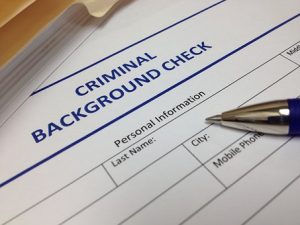Your resume is often the first impression employers get of you prior to the initial meeting. First impression is often considered the deciding factor in whether you may receive an interview call for the position.
To make a best first impression, it is tempting for the candidate sometime to fib with their experience, skills and qualifications and hope they will the one to get a call for that interview.
However, this may have serious consequences on your career in the long run. With social media word can spread quickly about applicants who aren’t being honest, and have their hard earned reputation ruined.
If you are unsure about something, if it doesn’t belong on your resume, please don’t use alternative facts.
Here are 5 common lies in resume.
If you’re convinced that your prospective employee is lying, you may be right! After all, your intuition is not often wrong. But if you’re going to accuse your prospective employee of lying, you definitely need proof. So, how can you find out for sure? What are the most accurate warning signs that your employee is lying? Lastly, and possibly most importantly, what can you do to catch your employee red-handed without breaking the bank?
By now, you’re probably convinced that he or she’s lying. But you need proof, Here’s your chance to get it.
1. Educational background Check
Competing with a educated workforce in US can be sometime frustrating, especially when you don’t have college degree. Perhaps for this reason some job seekers may opt to add false statements to the qualification area of their resume.
Checking qualification has become relatively easy these days, and perhaps the first thing most human resources departments will check. If someone is caught fibbing on their resume, the result can include termination after background check is complete and you will be automatically denied a possible position.
2. Technical skills
Having certain relevant technical skills may make you a very desirable candidate for a job, but it will be hard to backup your lie once you get the the job.
Your interview based on skills set you mentioned in your resume, and if you can not answer relevant questions regarding that specific skill may raise a red flag, which may prevent you from landing or keeping the job.
At end of the day honesty is the best policy and you may be able to learn some specific technical skills while at the job
3. False employment dates
After a while, It can be difficult to remember when you started or left an employment.
Employment dates are very important to include on your resume, but if you can’t recall the exact month you started job, you may be better off listing just the year.
4. Salary history
It’s best to leave information about your previous salaries off your resume. Perhaps it is best if you do not include the salary history in your resume. However, some employers may ask for it.
Just like employment dates, this information can be confirmed with a phone call, and imprecision may be taken as sign of falsehood.
5. No need to over impress
If you claim to have worked with a famous name or big name company in your previous position, you should be ready to have that claim verified. You never know whom you may interview with and they may happen to know them.
Interviewer may trust you but will verify the inaccuracies of your resume through (Android) background check.
Reverse Lookup & Trace Any Phone Number – Include Phone Numbers, Addresses & Background check including sex offender
Automated background check service 🙂
Related articles
Top Rated Background Screening Books






